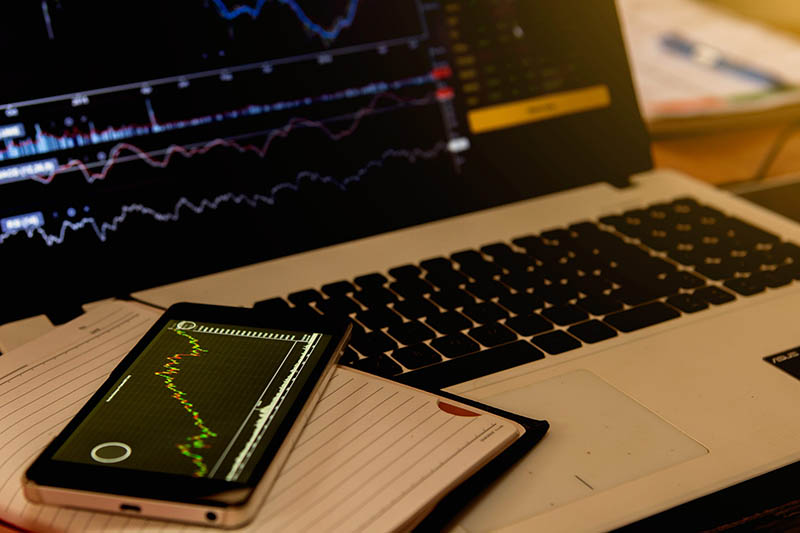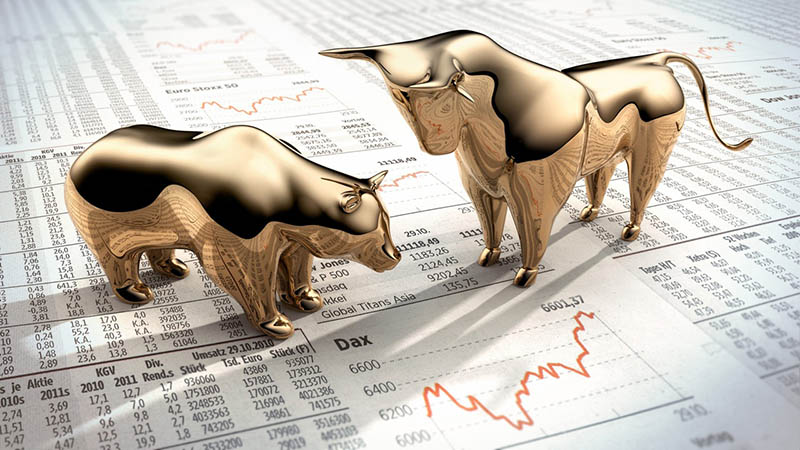Trading on the Forex Market
Contents
The Forex market (short for “Foreign Exchange”) represents the global market for currency exchange, where traders buy and sell various currencies to profit from changes in their exchange rates. For beginners in this world, trading on Forex may seem complex and unclear. However, with the right approach and knowledge, it can become an accessible and profitable form of investing. Especially, if you choose a reliable forex broker, such as RoboForex. In this article, we will examine the basic principles of Forex trading for beginners, provide tips on choosing a broker, and discuss the advantages and disadvantages of this type of investment.
What Is Needed for Successful Forex Trading?
Beginners in the Forex market must go through several key stages before they start trading successfully. Experts recommend following certain rules to avoid serious mistakes and reduce the risk of losing funds.
First, master the basics of trading through educational courses and self-study. This will help you understand the tools and rules of the market, significantly reducing the likelihood of initial losses.
Second, continuously develop your skills in both fundamental and technical analysis. Do not be afraid to make mistakes — this is part of the learning process.
The third rule is always to have a goal and stick to it strictly. Take profit at predetermined levels.
Fourth, avoid excessive activity. Do not trade based on excitement; focus only on profits and stick to your chosen strategy.
Finally, and perhaps most importantly, stay disciplined and resist the temptation to let your emotions get better. This will help avoid risks and maintain stability in Forex trading. Furthermore, it is important to choose a truly reliable and proven forex broker, our rating features only licensed companies with many years of history:
Top 5 best brokers on our website
How Does Forex Trading Work?
The main principle of Forex trading is to buy one currency, expecting its value to increase relative to another currency, which can then be sold. Thus, traders aim to profit by selling the currency at a higher price than it was bought. Each currency pair consists of a base and a quote currency, and the exchange rate shows how much of the quote currency is needed to purchase one unit of the base currency. Each currency has a three-letter code: the first two often refer to the country, and the third to the currency itself. For example, the US dollar is USD, the Canadian dollar is CAD, and the Norwegian krone is NOK. There are exceptions, such as EUR (euro) and MXN (Mexican peso). There are several types of currency pairs:
- Major currency pairs, such as EUR/USD, USD/JPY, and GBP/USD, are the most popular among traders. They have greater liquidity and less volatility compared to minor and exotic pairs.
- Minor currency pairs, not including the US dollar, also attract traders’ attention. These pairs, such as EUR/GBP and GBP/JPY, can be more volatile due to their lower liquidity.
- The Forex market also includes exotic pairs involving the currencies of developing countries, such as EUR/TRY and USD/HKD. They are characterized by low liquidity and high volatility, making their trading riskier.
- Regional currency pairs, such as NOK/SEK and AUD/NZD, also attract traders interested in specific regional dynamics.
Trading Strategies
The variety of strategies allows traders to choose the most suitable option based on their preferences and goals. Regardless of the selected strategy, it is important to remain mindful and minimize the influence of emotions on decision-making. The choice of strategy depends on the individual preferences and trading style of each investor. The main task is to develop and consistently execute a plan that brings stable profits with minimal risk.
Scalping
This strategy involves traders aiming to profit from short-term price fluctuations of currency pairs. Trades are opened and closed within a very short time frame, requiring quick reaction speed and frequent operations.
Day Trading
Intraday traders analyze price movements during the day, opening and closing positions before the day ends. This helps avoid the negative impact of fundamental events and rollover fees.
Swing Trading
Traders using this approach hold their positions for several days or weeks, focusing on long-term price trends. Technical analysis is used to determine possible price reversal points.
Position Trading
A long-term strategy based on trend analysis and fundamental factors. Traders employing this approach expect price direction changes over a long period, which can be months or even years.
Trend Trading
This strategy can be applied across various time frames and involves using technical analysis to identify current and future price trends. Traders aim to capture the direction of price movement and timely open and close positions.
What Drives Forex Market Prices?
In the Forex market, currency prices constantly fluctuate, reflecting the supply and demand for various currency pairs. Numerous factors influence these fluctuations, from economic data to political events and changes in interest rates. Here are the main factors determining Forex market prices:
- Economic Data: The state of a country’s economy plays a key role in determining the value of its currency. Markets react to key economic indicators, such as Gross Domestic Product (GDP), which provide insights into economic health.
- Political News and Events: Political events can significantly impact exchange rates. For example, conflicts between countries or the imposition of sanctions can cause sharp changes in currency values.
- Interest Rates: The level of interest rates also plays an important role. Higher interest rates typically make a currency more attractive to investors, which can lead to its appreciation.
- Commodity Prices: The currencies of commodity-exporting countries often depend on commodity prices. For example, the Australian dollar, the New Zealand dollar, and the Canadian dollar can all be affected by changes in the price of oil, coal, and other raw materials.
These factors collectively shape the complex dynamics of the Forex market, and successful traders must consider them when making decisions.

How to Trade Forex
Financial markets offer a variety of tools for trading Forex, each providing unique opportunities for traders.
Spot Forex Contracts
Spot trading in the forex exchange market involves a direct agreement between two parties to exchange one currency for another at the current market rate, with the delivery of funds on a specific date. This type of trading takes place over the counter and is primarily available to large financial institutions.
Currency Options
Currency options give traders the right to buy or sell a currency at a specific price in the future. These are traded on exchanges and provide a way to hedge against currency risks.
Currency Futures
Currency futures oblige the trader to buy or sell a currency at a set price on a specific date in the future. This instrument allows traders to speculate on currency price movements.
Currency ETFs
Exchange-traded funds that invest in currencies provide traders with access to various currency pairs or baskets of currencies on an exchange.
Retail Platforms
Retail traders can participate in Forex trading through specialized trading platforms that offer access to the secondary market.
Contracts for Difference (CFD)
CFDs allow traders to profit from fluctuations in currency prices without the need for physical delivery. This instrument is available to individuals on online platforms.
Advantages of Forex Trading
Financial trading, especially in the Forex market, continues to attract many investors for several reasons:
- Flexible Trading Hours: The Forex market operates 24/7, making it attractive for those looking for additional income sources without being limited by working hours.
- High Trading Volume: The average daily turnover in the Forex market ranges from 3 to 5 trillion dollars, ensuring high liquidity and numerous opportunities for traders.
- Low Entry Threshold: Starting to trade Forex doesn’t require large investments. The small amount needed to start makes the market accessible to many people. Additionally, most brokers, such as Alpari, offer free trial accounts (demo accounts), which allow you to trade without risking your money.
- Convenient Trading Platforms: Platforms like MetaTrader offer a simple and intuitive interface, making the trading process more accessible and understandable for beginners.
- Easy Access to Information: Traders have access to a wide range of analytics and news that help them make informed decisions when trading.
The popularity of the Forex market is also explained by its features, such as minimal obligations for traders. Unlike other markets, Forex traders do not acquire real assets, freeing them from the need to worry about long-term investments. Closing a trade means fixing a profit or loss, making the trading process more transparent and manageable.
Moreover, in the Forex market, there is no need for separate accounts in different currencies. Traders can easily sell or buy any currency pair regardless of the currency of their account, thanks to automatic calculations performed by trading platforms. This also contributes to the convenience and simplicity of the Forex trading process.
Risks in Forex Trading
In the Forex market, traders face inevitable financial risks, which can be both market-related and non-market-related. Market risks are associated with the likelihood of losses due to trading errors, which have caused losses for many market participants. To reduce these risks and ensure stable profits, traders should follow certain rules:
- Develop a clear trading strategy with defined goals and the ability to analyze before entering the market.
- Adhere to capital management principles.
- Constantly improve their knowledge and skills.
- Stick to their trading system and not change it when losses occur.
- Periodically analyze the strategy and make changes if necessary.
- Control their psychological state and avoid emotional outbursts.
Proper psychological preparation plays a key role in achieving success in the market. Traders should avoid trading when tired, ill, or in a high-spirited mood, as this can lead to an objective assessment of the situation and increased risks. It is necessary to learn to accept losses, which are inevitable in trading.
After a loss, it is pointless to open new positions in an attempt to compensate for them, as this can lead to even greater losses. If a trader feels they cannot control their emotions, they should temporarily stop trading and return to it when their emotions have settled. Non-market risks can arise from external factors such as choosing the wrong broker or force majeure circumstances such as global political and economic crises or natural disasters.
Conclusion
Forex trading offers a wealth of financial opportunities that attract both beginners and experienced traders. The ability to trade around the clock, a wide range of currency pairs and instruments, and high liquidity make the Forex market attractive to many investors. However, success in the market requires not only knowledge and skills but also discipline, strategy, and risk management. Only through thorough education, a deep understanding of market factors, and continuous improvement can one achieve the desired results in Forex trading.

